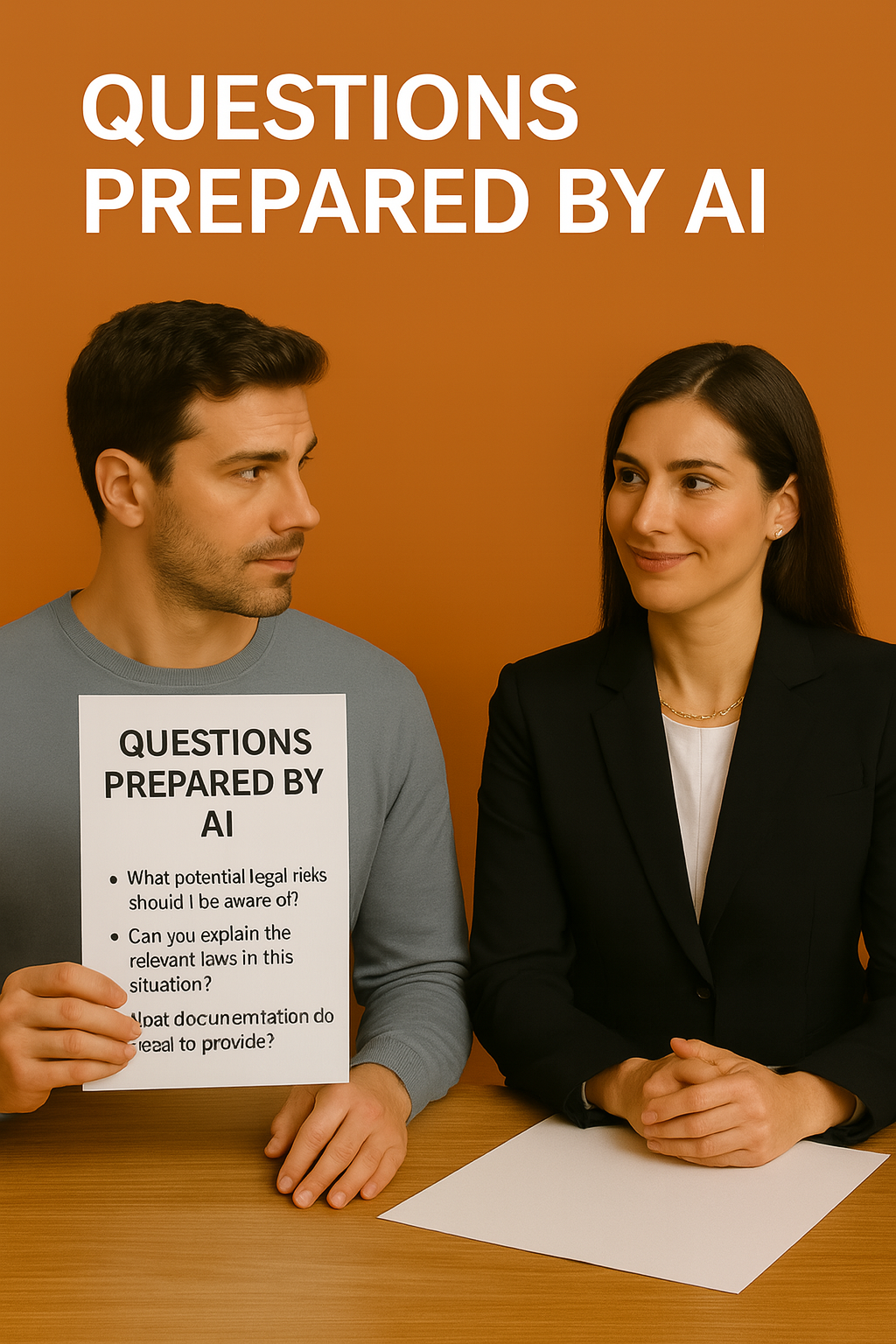In Part 1, we looked at the pitfalls of treating AI like a substitute lawyer — the risks of oversimplified answers, missed nuance, and false confidence. But that doesn’t mean AI has no place in the legal process.
In fact, when used wisely, AI can become a valuable ally — not in place of your lawyer, but in partnership with one.
Step One: Use AI to Get Oriented, Not Advised
AI can be great at helping you understand basic legal concepts. Want to know what a “demand letter” is? Curious about the difference between arbitration and mediation? AI can explain these terms in plain English — faster than most legal dictionaries.
Think of this as reading the signs before entering a courtroom. You’re not making arguments yet — you’re just understanding the terrain.
But here’s the trick: don’t stop there. Use that base knowledge as a springboard for your conversation with your attorney — not a substitute for it.
Step Two: Use AI to Organize Your Thoughts
Before you call your lawyer, AI can help you structure your situation. You might ask:
- “What questions should I ask my lawyer about a business dispute?”
- “How can I explain a potential conflict of interest in simple terms?”
AI can help you frame your issues clearly, so your legal counsel gets a running start — saving you time and legal fees.
It’s like rehearsing before the big meeting. You’re not replacing the professional — you’re just making the meeting more effective.
Step Three: Understand, Don’t Diagnose
AI can summarize statutes or court procedures. But remember: law is contextual. Just because something is “generally” true doesn’t mean it applies to your case.
That’s where people often trip up. They see something like, “Employers must give two weeks’ notice,” and take it as gospel — even if their state is at-will employment territory.
When in doubt, use AI to understand the framework, then bring your unique facts to your attorney.
Step Four: Use AI to Prepare — But Let Your Lawyer Lead
Your attorney’s job isn’t just to explain the law. It’s to protect your interests, predict risks, and guide you through high-stakes decisions. AI can’t replace that judgment, but it can help you absorb the information better and feel more prepared for the ride.
So if your lawyer gives you a worst-case scenario, don’t panic — and don’t Google your way to reassurance. Instead, use AI to help you form smarter follow-ups:
“What does it mean if a lawyer brings up a worst-case scenario early in a consultation?”
“Why might an attorney emphasize risks when the case seems minor?”
AI can offer general insights — your lawyer provides the precision.
Coming Up Next: Why Your Lawyer’s Worst-Case Scenario Isn’t a Scare Tactic
In our final installment, we’ll unpack one of the most misunderstood parts of working with legal counsel: why attorneys often start by telling you what could go wrong. It’s not about fear — it’s about strategy. And knowing that can transform how you hear legal advice moving forward.

